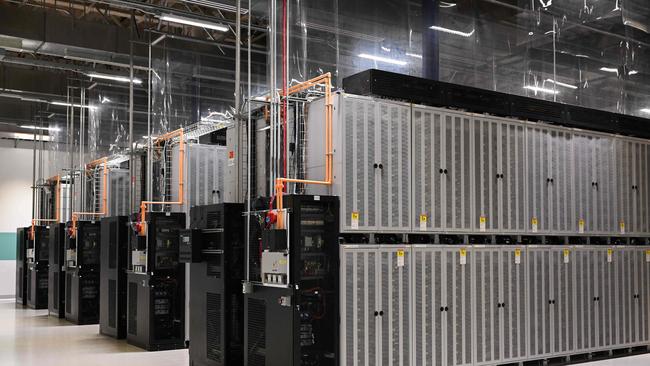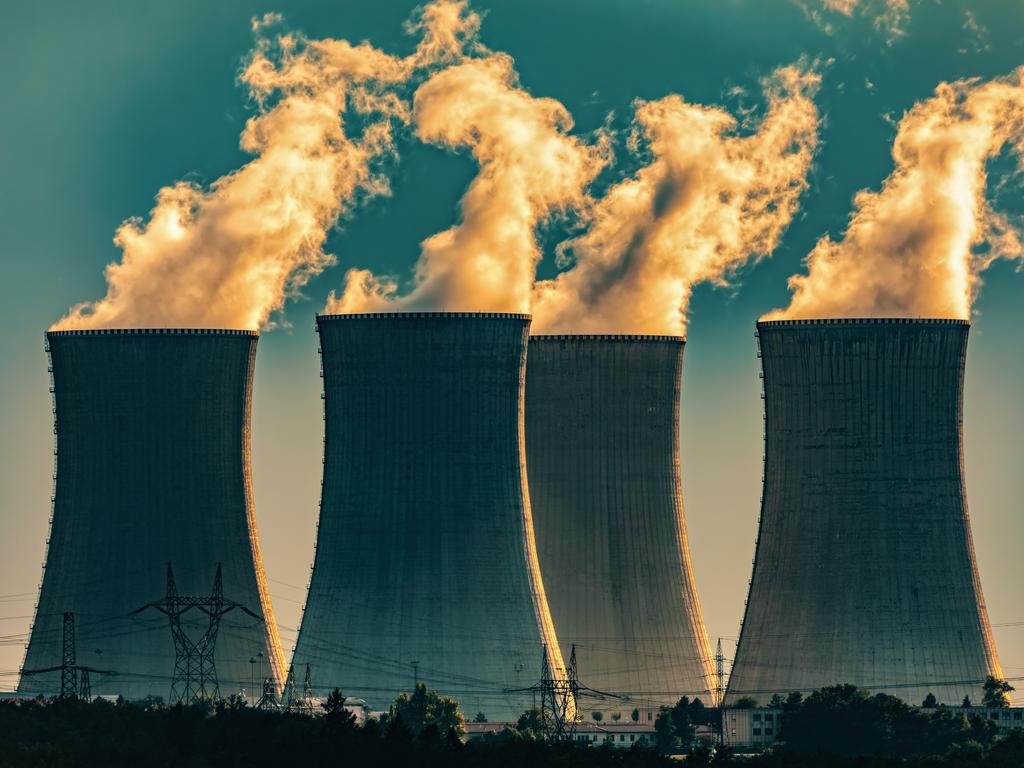No guarantee of cheaper bills after energy transition, AEMO chief executive says
The energy market operator boss’ admission there are no guarantees adopting renewables will lead to lower power bills will continue to stoke already fierce debate.
The chief executive of the Australian Energy Market Operator has conceded there is no guarantee the country’s transition will deliver cheaper power bills.
AEMO’s transition road map, which the Albanese government has endorsed, states renewables, backed up by large-scale batteries and gas, is the cheapest way of replacing coal power stations — many of which are under sustained economic pressure and already nearing the end of their technical lifespan.
But, Daniel Westerman, chief executive of AEMO, said he could not offer any guarantees delivering the transition would lead to lower power bills when asked.
“I can’t guarantee that, no” Mr Westerman said.
“The integrated system plan, which considers these things — generation storage and major transmission upgrades — is the lowest cost pathway. It doesn’t refer to whether it’s cheaper or more expensive for that wholesale component,” Mr Westerman told a Senate inquiry.
Proponents for the transition have insisted the transition to renewables will deliver cheaper bills, making any disruption to some communities worth it.

The development of large-scale renewables and associated high voltage transmission lines are already causing upheaval to some regional communities, with the transition yet to accelerate further.
While Mr Westerman was unwilling to place a cast-iron guarantee, proponents highlight the cost of developing new renewables is a major component of future bills. Should Australia develop more expensive alternatives, households would have to cover the cost.
Critics, however, counter that when considering the total cost, including transmission infrastructure, renewables are not cheaper.
The Albanese government has committed to renewables, earmarking the fuel source to generate 82 per cent of Australia’s electricity by 2030.
In contrast, the Coalition has proposed seven nuclear power stations — the first of which would be ready by 2037. Fossil fuel generators would be used until nuclear is ready, the Coalition has planned.
Opposition Energy spokesman Ted O’Brien said the comments illustrate the flawed Labor plan.
“Australians were sold a green dream of cheaper energy, but the reality is a nightmare of soaring prices that may never end,” said Mr O’Brien.
Labor has attacked the plan as too expensive. The Coalition has acknowledged its plan will need higher upfront costs. However, unlike renewables, nuclear will run for many decades and will not need replacing in the meantime, the Coalition also highlights.
The Coalition has vowed to reveal its costings for its nuclear plan before the end of the year, and there appears growing signs that it is winning favour with voters.
Australia’s energy industry is sceptical, though. Australia’s largest three electricity and gas retailers this week all raised concerns about social licence delays and worries about how nuclear would compete financially.
Australia has the world’s largest proliferation of rooftop solar, which means wholesale electricity prices are often at zero or below during the day. A large, traditional nuclear power station runs much like coal — throughout the day, and producing largely steady amounts of electricity.
It would therefore encounter the same financial pressures as coal, industry executives have warned. Coal is increasingly unprofitable as its comparative inflexibility means it has to produce electricity during the day when it is losing money.
The Coalition has insisted nuclear will stack up with renewables and it critically addresses reliability concerns.
Renewables are dependent on favourable conditions, such as ample sunlight or gusty winds. When conditions are unfavourable, electricity production falls. During these periods, known as renewable energy droughts, nuclear could be there to produce electricity.
Labor insists batteries and gas will be the backstop in its plan. But, batteries only have a capacity to produce electricity for around four hours, and gas supplies are rapidly depleting across Australia’s east coast.



